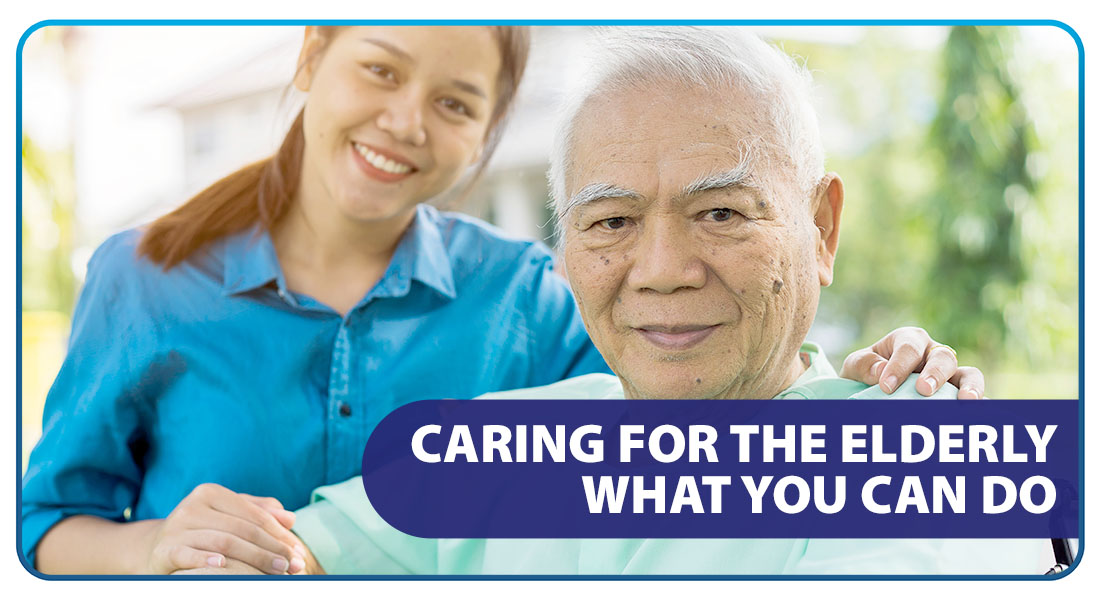The Philippines is home to about seven million senior citizens and the numbers are increasing every year. According to Article XV, Section 4 of the Philippine Constitution, “The family has the duty to care for its elderly members although the State may also do so through just programs of social security.” The traditional close family-ties of Filipinos is exhibited through the usual setup in the household where the elderly live with their children and rely on them for financial support. It is important to educate yourself on the basics of senior care so you can prevent unnecessary panic in your home.
Senior care in the Philippines
There are now a number of nursing homes in the country that’s run by both the private and public sector but it is still somewhat considered taboo for many Filipinos to confine your loved ones in a care facility. Geriatric care can be quite difficult to deal with at home, most especially if you are not professionally trained or if you lack experience in caring for the sick. Not to mention, age-related illnesses like Alzheimer’s, depression, and dementia can greatly affect your daily routine and may possibly strain family ties.
Be prepared, learn the basics
If you currently do not have access to a care facility or if you insist on caring for your elderly family member, you may have to consider educating yourself on first aid procedures and other senior care-related practices. Simple gestures like moving them to a room located on the ground floor or somewhere near the restroom can greatly enhance your loved ones’ quality of life. Other options to consider include:
- Hiring professional help from a private nurse or caregiver to assist in your family members’ medical needs like administration of medicines.
- Installing rails in your bathroom to avoid slips and other accidents.
- Preparing healthy meals to support your loved ones’ recommended diet.
- Always including your loved one in special activities and taking into consideration their personal interests to promote stronger relationships.
- Stocking up on essential medicines and other medical supplies so you are always prepared.
- Keeping emergency numbers and emergency kits on hand in case of any untoward incidents.
- Educating everyone in your household on emergency protocols and following important schedules like medical appointments and daily intake of required medications.
Planning ahead
Discussing the future with someone important in your life may be difficult at first but it is better to always be prepared. Financial stability is one of the top priorities for most households most especially if their family member relies on maintenance pills and medical machines to get through the day. Seek help from the government about pension plans and other benefits which are available for the elderly. Another major concern for most families if when their loved one is suffering from a mental illness like Alzheimer’s or dementia. You should discuss the matter with the rest of the members of your household so you can develop a clear plan on how you can deal with the situation and how you can protect the elderly from those who may take advantage of the situation. At the end of the day, you can only rely on your family and trusted friends for support so do not hesitate to ask for help if you need it.



